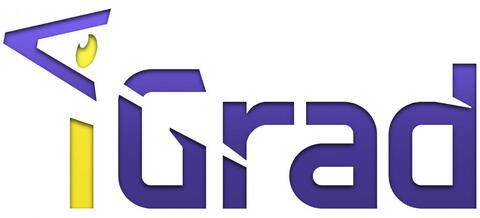The amount of financial aid each student receives is dependent on their own financial circumstances, however, even students on full financial aid will need to think about additional expenses not covered by financial aid. Students will come across these out of pocket expenses regardless of which higher education institution they attend. We have put together a list of expenses which students may run into outside of the base cost of Yale.
For students who have emergency expenses, please refer to the following page on the Yale College Safety Net.
Out of Pocket College Expenses
Social
There are dues to join some campus groups, including:
- Equipment costs for some sports groups.
- Music related clubs may require students to have instruments or uniforms, to participate.
- Frat/sorority fees, some offer financial assistance.
- Some events sponsored by student groups may require a deposit to attend.
Residential College sponsored activities usually are subsidized, but they range in cost from $5 to $75 depending on the activity.
Fees to enter private events (parties or local establishments like Toads Place).
There may be costs associated with traditional events on campus:
-
During the Yale-Harvard football game, students may need to find their own transportation, food, and lodging if they choose to stay at Harvard.
Graduation related fees and costs:
- Senior dues (required to enter some senior events).
- Cap and gown.
- Yearbook photos.
- Transport/lodging costs to campus for attending families.
- Events not covered by dues.
Living
Bedding and room supplies like hangers and pillows for those who can’t bring/ship these items from home.
A large fan for the hot months.
Hygiene items such as toothbrushes, toothpaste, hair products, deodorant, laundry detergent, razors, etc.
Haircuts.
Post Office Box fees if the student wishes to receive non-package mail (the Yale package receiving center is free, but does not accept anything except packages).
On campus housing:
- Food over breaks, before the dining halls open for the semester, and after they close for the semester. (The dining halls will be open during breaks but not covered by your aid package)
- Storage over Summer break for students’ belongings, or the cost to ship these items home.
- Laundry costs.
Transportation
Parking fees and gas (for students who plan to bring a vehicle to campus, view this page listing student parking rates).
Transportation to and from Connecticut.
Transportation to the train station, to the airport, or to stores that are out of walking distance.
Health
The Yale Health Insurance plan (some students may be eligible to waive this fee).
Some students will receive an extra grant covering this cost based off of their financial aid package.
Copays on prescriptions and treatment at Yale Health.
Procedures and items not covered by Yale Health Insurance, or your personal coverage if applicable (Dental, certain out of network care, etc.).
Any mental health services outside of Yale’s clinic.
Over the counter medications like Tylenol and Ibuprofen.
Technology fees
A Laptop capable of running any software needed for your studies.
Software not provided by Yale’s software library.
Academics
Art and Architecture class supplies and registration fees can be upwards of $200 a semester.
Lab fees, and lab materials including kits for biology classes, terrain clothing for field classes, or chemicals for chemistry classes.
Printing essays, problem sets, your thesis, and other materials.
Summer session fees (only 50% covered by financial aid if summer credits are needed).
Textbooks and course materials:
- On top of specific textbooks classes may require supplemental materials.
- Language classes almost always require students to purchase workbooks that can only be printed at the Tyco on campus. Prices can be found here (https://packets.tycoprinting.com/yalepackets.aspx).
- Some courses require students to purchase accounts with sites like Sapling, which costs $60 a year, in order to take the class.
- The library sometimes provides necessary books for coursework, however these are often in high demand and low supply, and therefore should not be relied on when planning for textbook fees.
Fines/Fees
Not turning your schedule in on time incurs a fee of $50.
Taxes on the taxable portions of your Yale scholarship can be large and should be planned for in advance.
Financial aid applications like the CSS profile have an application fee.
Other
For students who decide to study abroad, many of the costs may be covered by fellowships and the International Summer Award, but there will always be additional costs. These expenses can include: Passport fees, Visa fees, application fees, housing, food, flights, cell service, and going out with friends. Be sure to plan for these extra fees before arriving in your host country.
Lots of students at Yale end up taking some form of time off. For those students, whether it be a Leave of Absence, or Withdrawal (medical or otherwise), it is important to remember that there are a lot of financial responsibilities that come with taking time off. For students who must Withdraw, there is also the potential that the student must take courses through the Yale Summer Session, or with another university. Learn more about time off at Yale.
New Haven stores/restaurants, and especially the stores/restaurants near campus, can have a substantially higher cost than those that the student may be used to coming from their respective communities.
A special thanks to the wonderful students who contributed to this list through the FGLI at Yale Facebook group.

